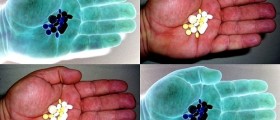
Many different types of heart disease exist, making it vary in severity. However, a heart disease or a heart failure is not a situation signifying that the heart has stopped functioning. Rather, it can be a sign of many other conditions.
If you desire to learn more about heart diseases and the connections between drug abuse and the health problems related to the heart, the following lines are bound to be of assistance.
Problems with Heart Disease
Basically, once the heart is not functioning well, there is a high likelihood that its pumping power is not normal. Rather, it is weaker in these situations. Due to these factors, the body cannot receive enough oxygen and, thereby, supply the organs adequately. Subsequently, the chamber walls of the heart get stiffer in order to pump the blood better and compensate for these loses. Yet, this can only last for a limited period of time, since the strength of the heart decreases over time.
Once smaller amounts of blood get circulated through our body, the kidneys react to this change and retain fluids and sodium. These substances may build up in certain body parts, leading to a condition called the congestive heart failure.
Drug Abuse is a Serious Problem
The dangerous sides of any form of drug abuse is a widely known thing and many organizations are giving their best to prevent people from abusing drugs, helping them preserve their health and the health of the society as a whole.
Even though this striving has resulted in a decrease of many forms of drug abuse, nowadays, many other types of drugs have become more and more present in people's lives.
Today, the most common drug types abused are cocaine, with about 1.5 million people taking it in the US in 1997, heroin reaching 2.4 million abusers in 1998, being 81,000 more than the year before.
Alternatively, people commonly abuse methamphetamines, powerful stimulants which increase alertness and make people feel pleasure and enthusiasm excessively.
Cocaine is made from the coca plant. It can be used through many different manners of consumption, including smoking, injecting, snorting and swallowing. Depending on the method of abusing, cocaine can have various effects on one's health resulting in paranoia, heart problems like irregularity of heartbeats, strokes or even organ damage and death.
As far as heroin is concerned, younger people are the predominant abusers, being the 81% of people who take advantage of this drug. Some of the effects of heroin abuse are drowsiness, pleasure and abnormally slow breathing. However, once a person gets addicted to heroin, not taking it will result in vomiting, nausea, diarrhea, confusion, pain and sweating.
Since this form of drug abuse requires needle injection, chances of suffering from AIDS or other infections are increased for heroin abusers.
Finally, those who get addicted to methamphetamines experience depression, abdominal cramps and increased appetite, along with paranoia, hallucinations, dental decay and heart damage in the long run.
Simply enough, cocaine affects the sympathetic nervous system, leading to the so-called “fight or flight” response which we enter when the adrenaline and epinephrine levels in our body rise. Among other changes our body undergoes during this occurrence, our heart rate increases and our blood vessels become narrower, leading to hypertension. These chances commonly lead to angina or chest pain, which many cocaine abusers have reported.
Apart from this attack on the heart, cocaine can lead to the disease of the heart muscle or the formation of a rupture onto the surface of the aorta, possibly causing heart attacks, especially in people between 19 and 44 years of age. This occurrence can easily be deadly.
Additionally, due to the rhythmic changes in the functioning of the heart, cocaine abuse can lead to sudden death. Before this occurs, the drug abusers usually complain about their racing heart.
All in all, cocaine abuse poses quite a serious threat to the human heart, interfering with its rhythm and functioning. If one does not stop taking the drugs, the damage can be extremely debilitating or even life-threatening.
Taking drugs can lead to a variety of other symptoms, many of which may require instant medical assistance. Thus, if you have a drug problem and notice tremors, jaundice, increasing abdominal girth, swelling of the legs, constant and persistent coughing, depression, fever or pain around the injection area, call your doctor.
Also, drugs may lead you to contemplating harm to yourself or others. Therefore, it is important to take action and seek help before too late.
To summarize, drug abuse and heart disease are two tightly connected things. Specific types of drugs, like cocaine, for example, may trigger serious heart problems, many of which may end up with death. Thus, it is crucial to avoid drugs. However, if you are already abusing drugs, you are highly advised to stop and seek professional medical help before your heart decides to give up on you.
















Your thoughts on this
Loading...